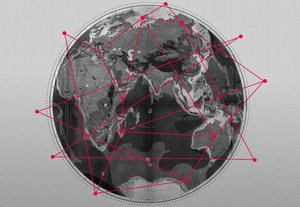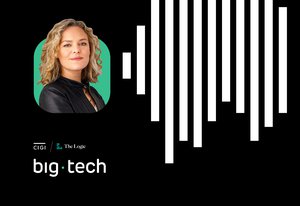In this week’s episode of Big Tech, we talk to a friend and collaborator of mine, Ben Scott. Our conversation was recorded in Dublin, on the sidelines of the third meeting of the International Grand Committee on Disinformation and “Fake News” (IGC). The IGC was established by a number of national parliamentary committees in 2018, in part to incentivize Facebook’s Mark Zuckerberg to testify. The rationale: Zuckerberg could say no to national “small” committees, but he couldn’t possibly say no to a multi-nation “grand” committee. He said no.
Of course, that doesn’t mean that the IGC hasn’t had an impact. Quite the opposite. The meetings have become a gathering of ideologically diverse parliamentarians, researchers and activists concerned about the lack of governance around the current digital economy who are — in a number of ways — working toward a comprehensive approach to platform governance. Rather than recommending a long list of legal and regulatory reforms for global companies such as Facebook, Google and Amazon, those arguing for comprehensive approach point out that piecemeal policies are easily circumvented, can contradict each other, address only fragments of a problem or simply don’t have the scale needed to effect structural change.
Ben Scott is a leading voice for this approach, and that’s no surprise; he has been on the front lines of internet policy for 20 years. Tracking his career tells us something important about the history of technology policy, and about what might lie ahead.
The first wave of technology policy focused on internet openness and distance from corporate control. The central policy issue of this period was net neutrality — namely, whether or not internet infrastructure companies (cable companies or service providers, for example) would have any say over the content that was transmitted over it. This period can be regarded as internet 1.0, a time when internet activists asked if the internet’s decentralized nature could withstand the forces of centralization and control. At the time, as Scott describes in the interview, he was working on the net neutrality agenda for a non-governmental organization called Free Press.
The second wave of technology policy aligned with the emergence of the web 2.0, or the social web. If the first iteration of the internet empowered nodes, the rise of social media on top of this open infrastructure (largely, activists succeeded in the net neutrality movement) connected people and enabled new forms of collective action. During this time (roughly aligning with the Obama presidency), policy makers considered how best to enable positive collective action (such as social movements, the Arab Spring or the digital economy), while limiting the negative (such as violent extremism, terrorist recruitment or child pornography). Then, Scott was working at the US Department of State helping to develop and implement Hillary Clinton’s twenty-first-century statecraft agenda. This was a heady time and place for tech optimism, when it was broadly believed that the export of American tech companies would play an inherently democratizing role. This is not, of course, how it turned out.
Today, we’re in a third wave of technology policy, one focused on the impact of global platforms on our society, our economy and our democracies. It is safe to say that the election of US President Donald Trump ushered in this wave by making the vulnerabilities in our digital infrastructure and their consequences frighteningly clear. Scott found his place in this third wave, too. He worked for the Clinton campaign, and after the 2016 election, he sought to better understand platforms’ impact on society by starting a tech think tank in Berlin called the Stiftung Neue Verantwortung. Today, Scott is at Luminate, supporting tech policy work around the world and seeking solutions for the regulatory challenges that platforms present. According to Scott, these challenges cannot be overcome by minor policy shifts or self-regulation. At their root is the very design of the platform-based internet. On this point, we agree. And if I am right that Scott’s career has tracked the evolution of the internet, then we should listen to where he thinks it is going.



